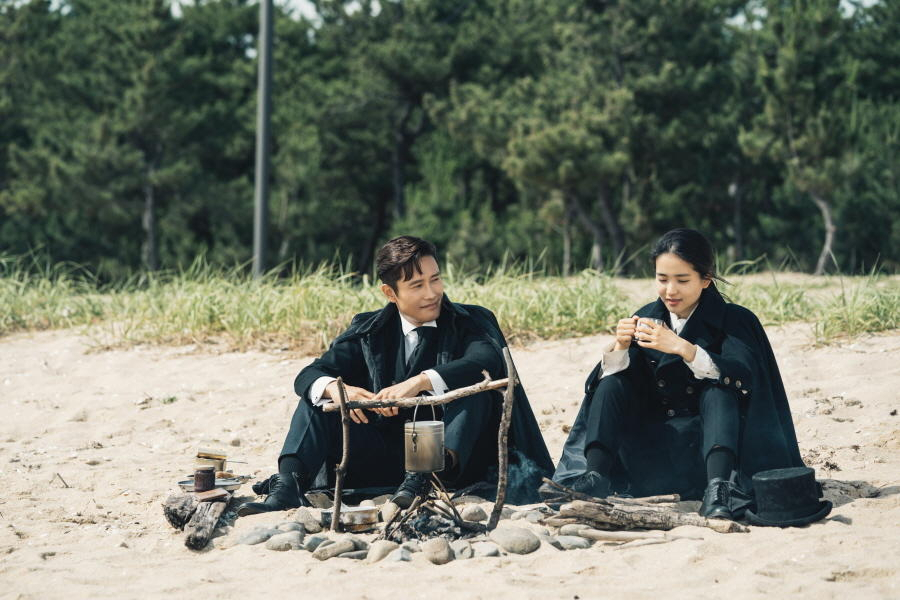 |
A scene from 2018 drama "Mr. Sunshine." tvN |
The remains of Korean independence fighter Whang Ki-hwan, the real-life inspiration for 2018 hit TV drama “Mr. Sunshine,” are set to return home some 100 years after he passed away in New York.
The Korean patriot, whose English name was Earl K. Whang, inspired the drama series' producers to create the character Eugene Choi (played by Lee Byung-hun), a Korean American US Marine Corps officer who returns to Korea and ends up helping his compatriots thwart a looming Japanese invasion in the beginning of the 20th century. Starring Kim Tae-ri as the female protagonist opposite Lee, the show was a huge success when it premiered locally on tvN and internationally on Netflix.
The Ministry of Patriots and Veterans Affairs said on Wednesday that it has agreed with Mount Olivet Cemetery in Queens, New York, to exhume Whang’s body.
The ministry had tried to bring back the remains to Korea since 2013, but the cemetery insisted on a court order to exhume the body without his family’s approval.
The ministry filed lawsuits with the New York court in 2019 and last year, but failed to obtain court approval for lack of official records to confirm that Whang had no living family.
Together with the Korean consulate general in New York, the ministry continued to push the cemetery to grant Koreans the wish to bring the patriot back to his motherland, and recently got the go-ahead.
Once Whang’s remains land in South Korea, he will be buried at the Daejeon National Cemetery after a government-led ceremony.
Born in Suncheon, South Pyongan Province, which is now in North Korea, Whang went to the US in 1904 in his late teens.
He voluntarily joined the US Army when the US declared its participation in the World War I in 1917, and rescued wounded soldiers on the front lines in Europe.
In June 1919, Whang moved to France and helped the Korean Representative to the Paris Peace Conference at the suggestion of its head, Kim Kyu-shik, who was in charge of international affairs for the Korean government in exile in Shanghai at that time, and became vice president of the interim government in 1943.
The Korean Representative was later reorganized as the Korean Committee, and Whang was appointed its secretary-general.
Whang led the committee in France after Kim went to the US in August, and engaged in diplomatic efforts for Korea’s independence, or what he called a “transfer of the sovereignty Japan has robbed from us to the Korean exile government."
In October 1919, Whang persuaded the British government not to repatriate Korean laborers who arrived in Britain from Murmansk, Russia, and helped 35 of them settle in France.
In January 1920, Whang published a French-language magazine titled La Coree Libre, and distributed it to news organizations, government officials and scholars in Europe.
After serving at the committee for about two years, Whang was called to the US by Syngman Rhee, who was then preparing for the Washington Conference in November 1921. Rhee became the first president of South Korea in 1948.
Whang died of a heart attack in New York in 1923. His grave was found by Koreans in 2008 at the West Lawn of Mount Olivet Cemetery.







